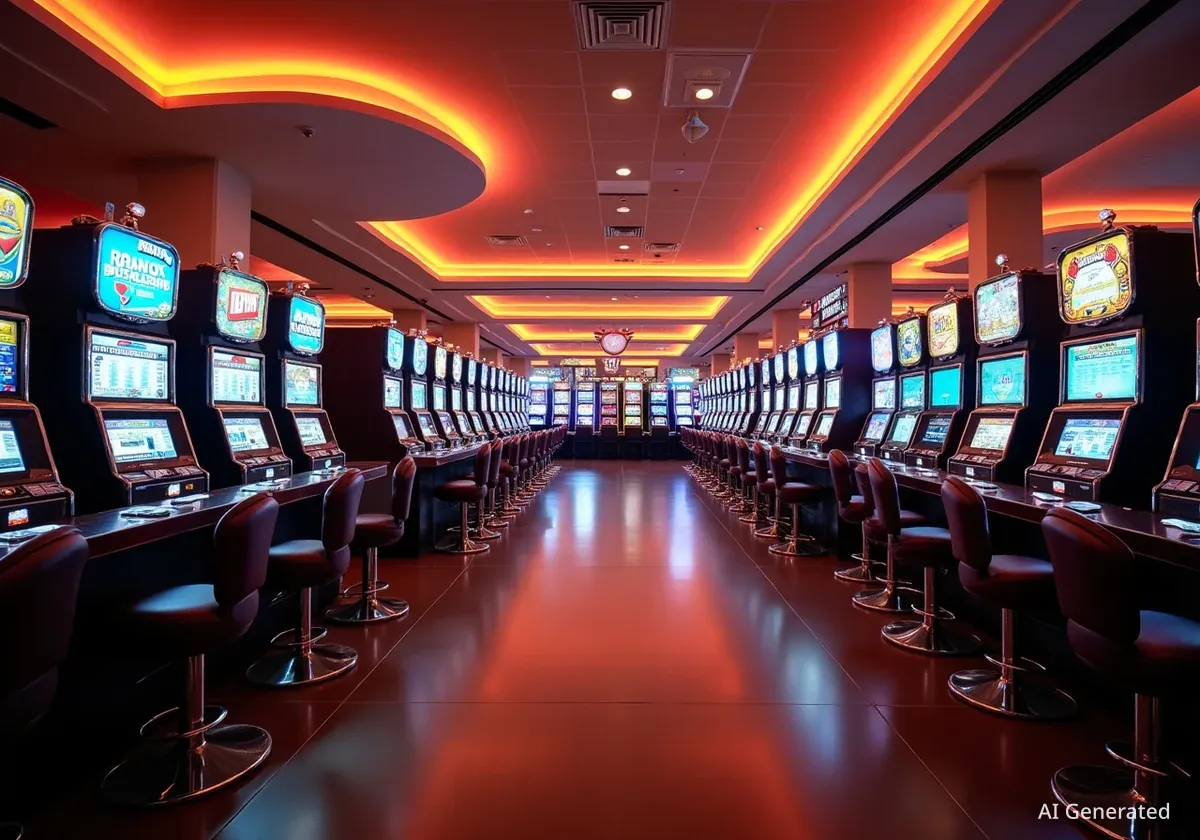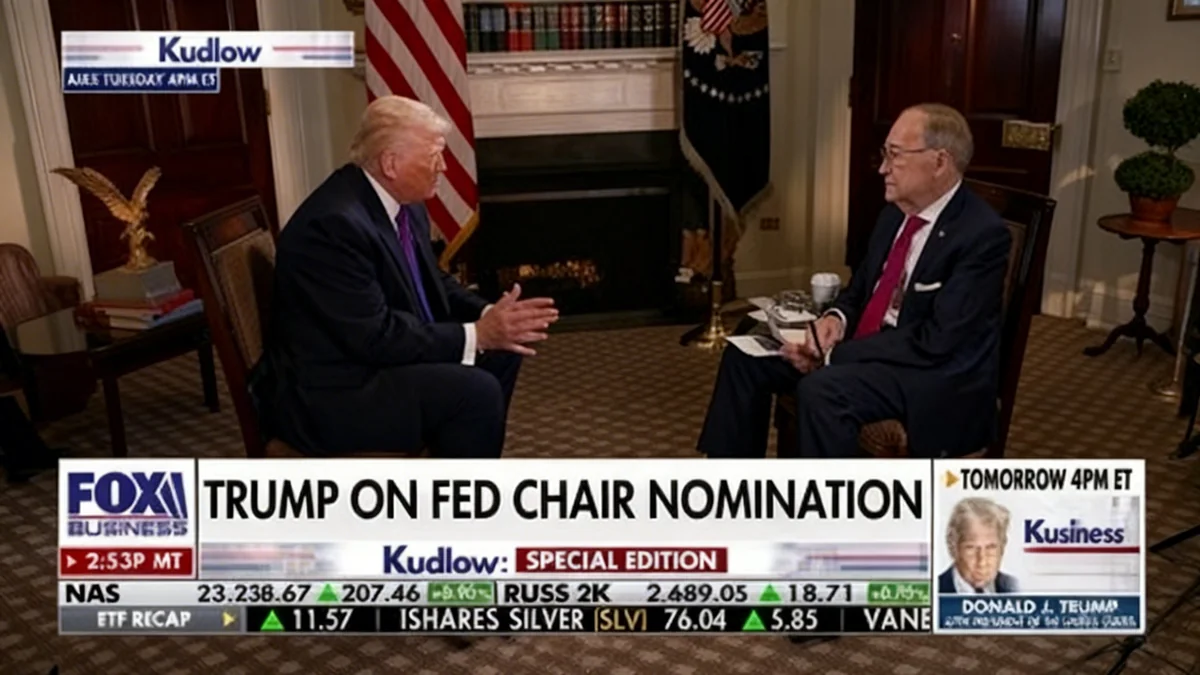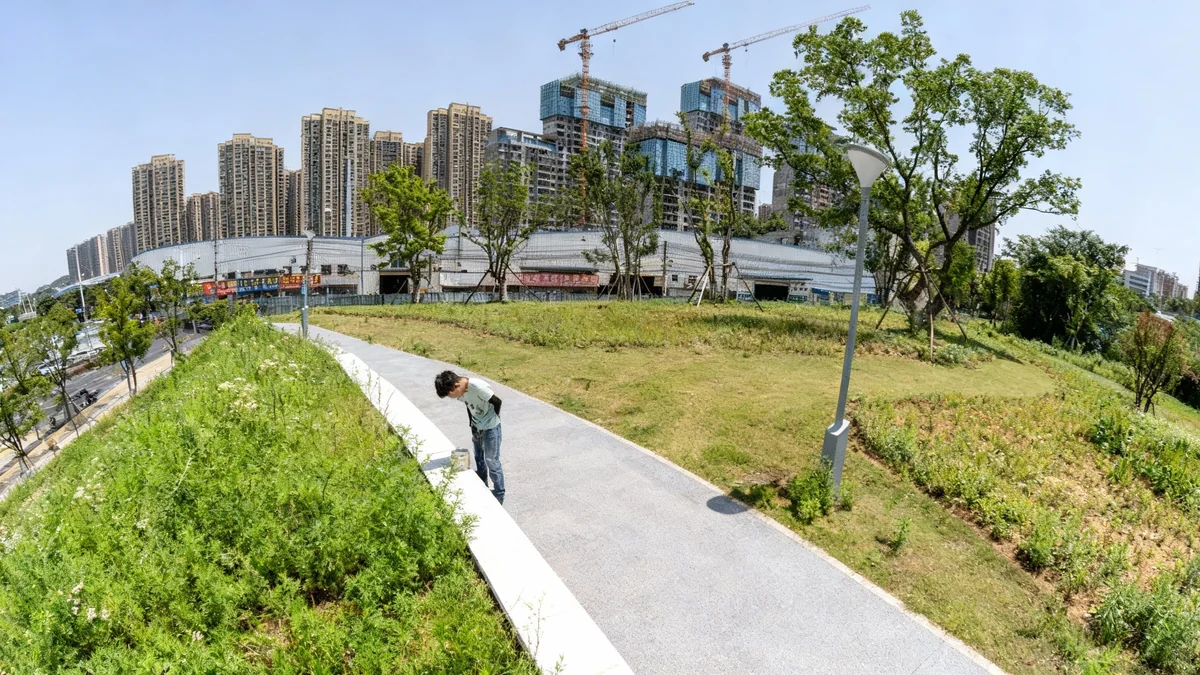Las Vegas businesses are offering new discounts and incentives to counter a prolonged drop in visitors. Hotels, casinos, and restaurants are increasing special offers to maintain cash flow. This shift comes as consumer confidence weakens due to slower hiring and changing trade tariffs, impacting the region's vital tourism sector.
Key Takeaways
- Las Vegas visitor numbers fell 6.7% in August compared to last year.
- Hotel occupancy on the Strip dropped by 7.8% through September.
- Businesses are offering discounts, including waived resort fees and meal credits.
- Group business, such as conventions, has seen a sharp decline in 2025.
- Real estate developers are pausing new commercial projects due to market uncertainty.
Visitor Numbers Decline Across Las Vegas
The latest data from the Las Vegas Convention and Visitors Authority shows a significant decrease in tourism. In August, the region welcomed approximately 3.1 million visitors. This represents a 6.7% decline from the previous year. Convention attendance also fell, dropping 8% to about 587,000 people.
Hotels on the Las Vegas Strip experienced the most impact. Preliminary data from CoStar through September indicates a 7.8% decrease in occupancy compared to last year. Revenue per available room (RevPAR) also slid by 12%.
Key Tourism Statistics
- August 2025 regional visitors: 3.1 million (down 6.7% year-over-year)
- August 2025 convention attendance: 587,000 (down 8% year-over-year)
- Strip hotel occupancy: down 7.8% (through September)
- Revenue per available room (RevPAR): down 12% (through September)
- Year-to-date RevPAR for the region: down 11% (through August)
Businesses Respond with Discounts
In response to fewer visitors, many Las Vegas businesses are introducing new incentives. Resorts World Las Vegas, for example, has waived some resort and parking fees. Caesars Entertainment, a major Strip property, offered a two-night stay for $300, which included a $200 credit for food and drinks.
Historically, Las Vegas hotels used low room rates to attract guests who would then spend money at casinos, shops, and other attractions. However, developer Jim Stuart noted a shift in this strategy.
"There's less dependence on that strategy these days with other discounts on offer as the region reels from a significant drop in international visitors, caused partly by tensions over trade tariffs," Stuart said.
Stuart is a partner in the development firm Matter Real Estate Group. He highlighted the impact of trade tariffs on international travel to the region.
Economic Context
Las Vegas saw strong performance in 2024, hosting major events like the Super Bowl. However, 2025 has brought increased pressure. Michael Stathokostopoulos, senior director of hospitality analytics at CoStar Group, stated that hotel performance has cooled significantly this year after three years of post-pandemic recovery. Most key metrics have turned negative through August.
Group Business Declines Significantly
While leisure travel to Las Vegas has remained slightly positive, group business has fallen sharply in 2025. This includes conventions and other large gatherings. Michael Stathokostopoulos from CoStar Group emphasized the severity of this decline.
"By June, group demand was down nearly 50% compared to a year earlier, pulling total demand 16% lower," Stathokostopoulos reported.
This drop in group events is a major factor in the overall visitor slump. Conventions bring in a large number of visitors who typically spend more than leisure tourists.
Real Estate Development Slows
The tourism setbacks are also affecting the real estate sector. Developers are reconsidering commercial projects. Some real estate executives anticipate more vacancies in the coming months.
Jim Stuart commented on the current development climate: "A lot of developers are just hitting the pause button until we can get a little more certainty. It could be another three or four quarters before you see people getting opportunistic again."
Not all properties are equally affected. Stuart mentioned that UnCommons, his company's $400 million mixed-use complex, has achieved high occupancy rates. This complex, located about 10 miles from the Strip, has 100% office occupancy and 99% retail occupancy. Most of its space was leased before the multi-phase project's full completion.
Impact on Apartment and Office Markets
The tourism downturn has also affected apartment owners in the region. An August report from brokerage Northmarq noted that while new household formation still drives renter demand, rapid construction growth is expected to slow by year-end. Pete O'Neil, Northmarq's research director, stated that infrastructure and redevelopment projects should support long-term housing demand despite near-term softness.
CoStar data shows that the Las Vegas regional apartment vacancy rate has risen to 9.9%. This is largely due to the slow lease-up of many recently completed apartments. With high competition for renters, including those affected by job cuts in the hospitality sector, nearly 70% of multifamily properties in Las Vegas offered concessions in August. This is up from 60% in January and well above the 2024 average of 46%. Rent growth has slowed considerably, currently showing an annual rate of negative 1.7%.
The office market, traditionally stable with limited new construction, is also seeing changes. Leasing is expected to decline slightly for the rest of 2025. This is mainly attributed to national economic conditions rather than local tourism. CoStar tracking in mid-September ranked Las Vegas offices 14th among major regions for occupancy, at about 90%.
Patti Dillon, executive vice president in the Las Vegas office of Colliers, observed, "Office demand has dipped a bit, especially in areas close to the Strip where businesses rely on tourism and hospitality. Some companies are holding off on expanding or renewing leases until they have a better sense of where the economy is heading."
Dillon expects the market to stabilize for the remainder of 2025, with demand picking up as tourism and conventions fully rebound.
Retail Sector Remains Resilient
Despite headlines about fewer visitors, the retail sector appears more resilient. Deana Marcello, Executive Vice President at Colliers, noted that markets are cyclical. Las Vegas has always experienced natural ebbs and flows tied to economic conditions and consumer spending.
CoStar data shows that current Las Vegas retail vacancy remains tight at 5.1%. Regional and national chains continue to seek space in high-traffic areas, including the Strip. Marcello also highlighted Las Vegas's appeal to investors.
"From a capital markets perspective, Las Vegas continues to attract institutional and high-net-worth investors across all asset classes, drawn to the market's continued growth trajectory and favorable tax environment," Marcello said.
The region's global appeal as a sports and entertainment destination, along with a rising population, diversified job growth, and a pro-business tax environment, continues to attract investment.
Future Developments Continue
Las Vegas has significantly enhanced its entertainment and sports profile in the past five years. This includes the high-tech Sphere concert venue and the expansion of professional sports like the NFL and Formula 1 auto racing. Before the recent downturn, several developers invested in projects based on rising demand for sports, entertainment, and retail, alongside new hotel rooms.
One notable project is Bally’s planned mixed-use stadium and resort complex. This development will occupy the 35-acre site of the former Tropicana hotel. Bally’s plans include a $1.5 billion Major League Baseball stadium for the relocating A's. It also features hotel towers with 3,000 rooms and a casino. The project will include a separate 2,500-seat entertainment space and 500,000 square feet for retail and dining. Bally’s expects construction to begin in the first half of 2026.
Michael Hirschfeld, vice chairman at brokerage JLL, which is leading retail leasing for Bally's development, stated, "Las Vegas is one of the most important markets for food and beverage, entertainment and retail in the U.S. The extended hours of operation in the market yield some of the highest sales per unit in the country."
These long-term projects signal continued confidence in Las Vegas's future as a major global destination.





